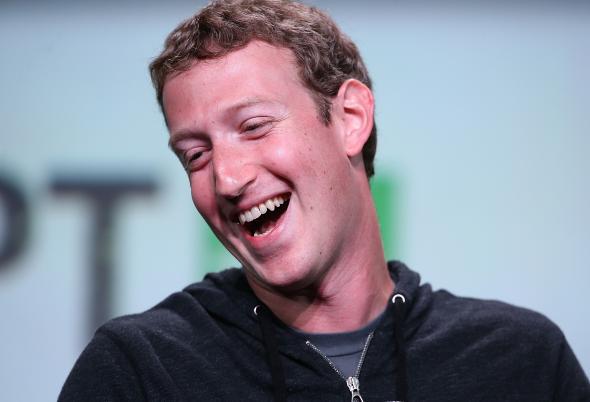To understand Facebook’s mind-boggling $19 billion acquisition of WhatsApp, you have to understand the company’s fundamental terror of any fast-growing rival social application. But you also have to understand two fundamental facts about Facebook’s corporate structure. The first is that it’s a publicly traded company where less than half of the stock is owned by Mark Zuckerberg. The second is that Zuckerberg’s shares carry special bonus voting rights, giving him 57 percent of the votes in any shareholder meeting. Arrangements in which a firm has two classes of shares are not so uncommon (Slate’s parent company, Graham Holdings Co., has just such an arrangement). But for a single individual—rather than a family or a team of co-founders—to control such a high-profile company is essentially unique. Structuring Facebook as a personal dictatorship gives its CEO an unusual set of incentives that bias the company in favor of big acquisitions.
From the standpoint of a single individual, 57 percent of the votes is as good as 100 percent of the votes. It takes a simple majority to win, so Zuckerberg is guaranteed a majority at any vote. Because Zuckerberg controls a majority of the shares, Facebook is a “controlled company” and doesn’t have a normal governance process. As a gesture of good faith, Zuckerberg has appointed a board of directors featuring independent directors (one of whom is Don Graham, chairman and CEO of the aforementioned Graham Holdings Co.) who don’t work at the company. But as the controlling shareholder, Zuckerberg decides who is and isn’t on the board—he, not they, runs the company.
Of course, in any firm, no matter how widely held, the CEO holds immense sway. Tim Cook matters much more in Apple’s decision-making than any independent board member possibly could. But the CEO of an ordinary company is ultimately answerable to a board that is answerable to shareholders. That doesn’t mean he has to care what an everyday stock owner thinks, but it does mean his position is vulnerable to activist investors and corporate raiders. At a bare minimum, he has to constantly genuflect to the concept of shareholder value—including extensive consultations with the board before doing any $19 billion acquisitions.
Zuckerberg, by contrast, has the ability to hash out an acquisition price casually “over chocolate covered strawberries” that were originally intended as a treat to be shared with his wife. He even gave WhatsApp CEO Jan Koum a seat on the board. And why not? The board is meaningless anyway. Once the deal is sealed, WhatsApp will be part of Facebook, and as such, it will be 100 percent under Zuckerberg’s control.
Contrast that with some other things Facebook could do with $19 billion. A special dividend, for example. If Facebook were to flush a bunch of cash out to shareholders, Zuckerberg wouldn’t get 100 percent of it. He wouldn’t get 57 percent of it either. He’d get about 28 percent of the money, reflecting his slice of the overall Facebook stock pie.
That’s nothing to sneeze at, obviously. But 28 is a lot less than 100. And it points to a serious problem for Facebook’s shareholders. It means that from the standpoint of the founder, CEO, and controlling shareholder, $1 invested in making Facebook larger is worth a lot more than a dollar put into the pockets of shareholders. Whenever Facebook spends money buying another company, Zuckerberg personally controls the entire company that got purchased. If Facebook decided to kick that money out to shareholders instead, Zuckerberg would get only a fraction of the cash. That means Facebook is going to be systematically biased in favor of investing too much and acquiring too much, while kicking out too little to shareholders.
Personally, I don’t mind this at all. Most publicly traded companies are biased in the opposite direction by the short-term thinking induced by market fluctuations. Zuckerberg’s Facebook empire may overpay for the occasional company, but it will never be boring.
That’s great for journalists, and probably good for the world—a useful counterpoint to the corporate mainstream. And for Facebook as an enterprise, it’s not so bad either. I’ve never been a big Facebook fan, but at this point, anyone who doubts that Zuckerberg is a brilliant tech visionary has his head in the sand. If Zuckerberg wants to acquire a company, it’s almost certainly because it has a great product or a great team. There’s no reason to believe he’s going to go out and buy a bunch of duds. But overpay for them a bit? Get a little too ambitious, a little too aggressive, or a little too optimistic? Maybe so. After all, it’s only partially his money. But once it’s spent, it’s 100 percent his company. The rest of the shareholders are just along for the ride.
